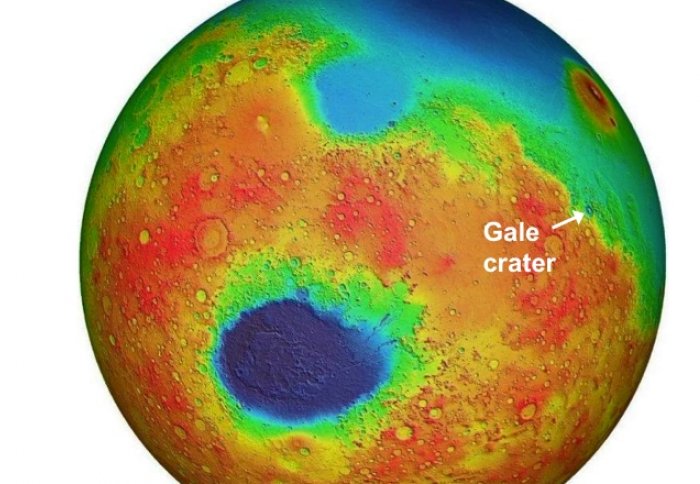Pebbles help explain Mars' watery past
by Colin Smith

The discovery of sand and pebbles that have turned to rock has provided the most definitive proof yet of ancient water flow on Mars.
Professor Gupta in the video slide show talks about the mission to date and describes the importance of this latest discovery.
Professor Sanjeev Gupta, from Imperial College London, and his colleagues from NASA's Mars Science Laboratory mission provide the first-ever observations of ancient river sedimentary deposits in the form of conglomerates, which are pebbles, mixed with sand that have turned to rock. The discovery of conglomerates on the Martian surface provides further proof that Mars once had a warmer and wetter past.
The study, which is published in the journal Science, is part of NASA’s latest mission to Mars, which landed a six-wheeled vehicle, the size of a small car, on the planet. The vehicle, called the Curiosity rover, landed in a region of the planet called Gale crater and is being remotely operated by the NASA team to learn more about Mars’ past.
Visions of the Universe
Professor Gupta has also been providing scientific expertise for the "Visions of the Universe" exhibition. This project enables visitors to explore the vistas that Curiosity sees on the Martian surface via a 13 metre by four metre projection of the Martian surface. The exhibition is being held at the at the National Maritime museum and opens June 7th 2013.
Cheltenham Science Festival
Professor Gupta and astrobiologist Lewis Dartnell will also be discussing the explorations and discoveries of the Curiosity rover on Mars at the Times Cheltenham Science Festival on Sunday 9th June 2013.
Article text (excluding photos or graphics) © Imperial College London.
Photos and graphics subject to third party copyright used with permission or © Imperial College London.
Reporter
Colin Smith
Communications and Public Affairs
